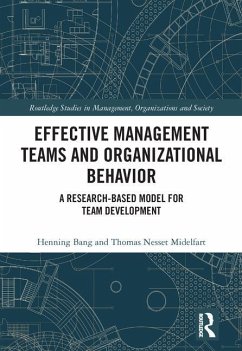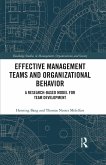Most contemporary organizations use management teams to manage and coordinate their businesses at all levels of the organizational hierarchy. Management teams typically set overall goals, strategies, and priorities, making vital organizational decisions. They discuss issues, solve problems, offer advice, and ensure various processes and units are aligned and interact efficiently. Although management teams are vital for overall organizational performance, research indicates that they are largely underused and less effective than their potential would suggest for value creation.
This book provides a research-based and practical model of the characteristics of effective management teams. It looks in depth at each factor of the model, discusses the supporting research, provides examples of how the factors influence the work and effectiveness of management teams, and shares tips and tools for successfully working with management team development.
It provides researchers, academics, and students of organizational behavior with an overview of the variables that empirical research has found to be robustly related to management team effectiveness and will enable leaders and management consultants to develop more effective management teams.
This book provides a research-based and practical model of the characteristics of effective management teams. It looks in depth at each factor of the model, discusses the supporting research, provides examples of how the factors influence the work and effectiveness of management teams, and shares tips and tools for successfully working with management team development.
It provides researchers, academics, and students of organizational behavior with an overview of the variables that empirical research has found to be robustly related to management team effectiveness and will enable leaders and management consultants to develop more effective management teams.








